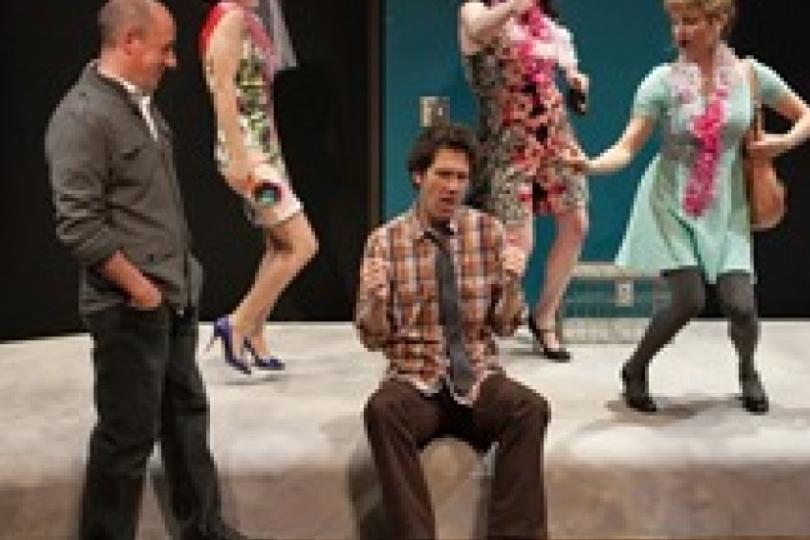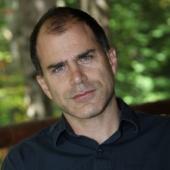REVIEW: 'Drunken City" - Comedy, Tragedy, and Yeah, Life’s Tough But Whatevs
Review

The title of the popular film comedy Four Weddings and A Funeral nods to an old theatrical tradition. Ending a play with either a Funeral or a Wedding was at one time a given in the English-speaking theatre, signaling either the tragedy we all share, or what is still considered the gateway to true adulthood and a healthy future: “they lived happily ever after.” Weddings let the Comedy explode with a big party, Funerals ease the Tragedy into an elegiac finish. In contemporary dramas we tend to fudge the two – or avoid them altogether.
I stumbled into an argument not too long ago when I casually mentioned that life itself is Tragedy, in the classical sense that we all know what’s coming and there’s nothing anyone can do to stop it. The person I was speaking with didn’t disagree with me, but couldn’t let the word “Tragedy” stand, and argued both of us into a near-stupor trying to convince me to mitigate my position with a term that was less, well, tragic. It reminded me of Barbara Ehrenreich’s incredible book about being diagnosed with cancer only to discover an entire field of care-giving devoted to convincing her this terrifying disease was “a gift.” The idea of embracing Tragedy can be downright un-American.
At the Comedy end of the spectrum, it was hard for me to watch incendiary comedians of my youth like Steve Martin, Robin Williams and Adam Sandler mellow into their 40s and decide they wanted the world to stop laughing so hard and hug each other instead (group hug!). This weird American Comedic Disease is even starting to sentimentalize Louis CK, so strong is our seeming desire to avoid the traditional extremes at any cost.
This is all came to mind watching Dark & Stormy’s production of Drunken City, where an amazing ensemble of performers attempted to blow me out of my chair armed only with a pop-gun and a few swizzle sticks. The story they tell has some real belly laughs, but it careens gently from laughter to “seriousness” in ways that are more familiar from television and film.
I catered as a survival job in NYC in the ‘90s. It was a truism that a cocktail party should last no more than two hours – after that, if you didn’t give those tipsy rich folks something more than high-end munchies, you were gonna have a riot on your hands. Network or cable shows in the Drunken City vein run under an hour, sometimes as quickly as 22 minutes – like the guest at a long cocktail party, I found my stomach rumbling from the lack of sustenance, and all the bright, witty conversation beginning to irritate me.
Dark & Stormy is a newish company that’s come screaming out of the gate with a series of terrifically cast shows, professionally produced and expertly marketed. But their choice of material so far seems not up to the rest of their organizational chops (I’ve seen three out of four productions). I’m unsure whether that’s due to financial considerations somehow (a good cast does not come cheap, and rightly so), or is more of an artistic programming choice. It’s not that they choose bad material – far from it – more like they’re using an AK-47 to go squirrel hunting.
From the Artistic Director’s welcoming speech, I gather Drunken City was chosen through something like a focus group – this is not uncommon but has always puzzled me. The big argument against artists running things is they have no head for business, so that may explain my confusion, but since every movie and television show is focus-grouped to some extent – and most of them tank – this particular artist’s head doesn’t quite see the attraction. But then I’m the kind of person who thinks Kafka’s quote, “A book should serve as an ax for the frozen sea within us,” is the best defense for making and consuming art – maybe I shouldn’t be writing about a light comedy at all.
Maybe I’m just the kind of person who doesn’t put the word “light” before anything if I can help it – ice cream, beer, drama. Drunken City is a good time, if you go the theatre expecting nothing more. I hope Dark & Stormy continues their level of professionalism and rock-star casting, and eventually programs material these fine actors can really sink their jaws into. For those of us who enjoy being blown out of our chairs every once in a while.




